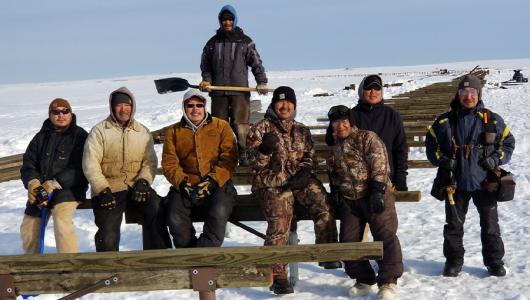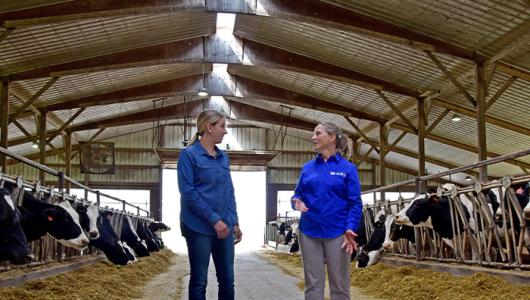May is American Wetlands Month, and this year we want to celebrate all the work private landowners have done to help wetlands thrive. Private landowners have worked with the Natural Resources Conservation Service (NRCS) to enroll over 2.8 million acres in wetland conservation easements. These wetlands protect plants and provide habitat for wildlife, including endangered or threatened species.
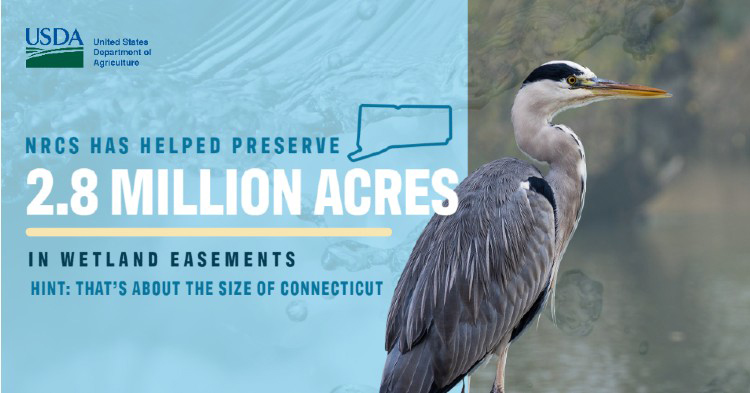
Wetlands are one of our most productive ecosystems and provide enrichment and enjoyment. They also filter water, reduce soil loss, sequester carbon from the atmosphere, reduce flooding, and recharge groundwater. They even provide recreational opportunities like hunting and fishing.
Wetland easements:
- Filter sediments and chemicals
- Reduce flooding
- Recharge groundwater
- Protect biological diversity
- Provide opportunities for educational, scientific, and limited recreational activities.
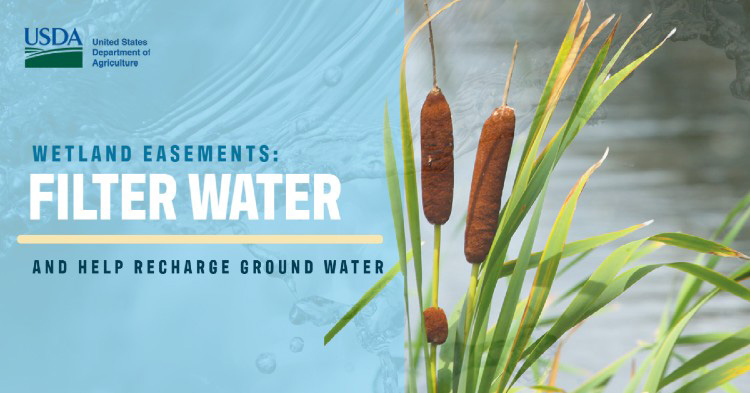
Farmers, ranchers, and private landowners have worked with NRCS to create, restore, and enhance wetlands for decades. They have incorporated wetlands into their operations for the benefits to the environment and their land. To help realize these benefits they have worked with us for assistance through our programs and services.
Wetland easements are also crucial to wildlife like
- The Louisiana black bear -- wetlands easements have been credited for their recovery in 2019
- The Oregon chub -- wetlands easements have been credited for their recovery in 2015
- Whooping cranes -- which rely on wetland easements on their cross-country treks and for raising young
- Sage grouse and other wildlife, which depend on the wet meadows of sagebrush country
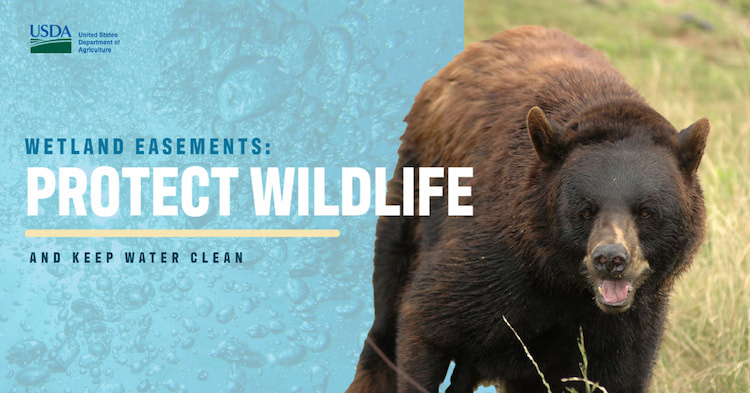
NRCS offers financial and technical assistance to farmers and private landowners through programs to create, restore, and enhance wetlands. Agricultural Conservation Easement Program (ACEP) Wetland Reserve Easement (WRE) offers opportunities to put marginal cropland and other eligible land into permanent and 30-year easements. NRCS accepts ACEP WRE applications year-round but applications are ranked and funded by enrollment periods. Each state sets the application deadlines for enrollment periods; contact your local service center for information.
As we celebrate the month, our producers, partners, educators, and others deserve thanks for helping to protect wetlands.
If you are interested in learning more about wetlands, please contact your local USDA Service Center to set up an in-person or phone appointment.
Ashley Miller is a Public Affairs Specialist with USDA.

